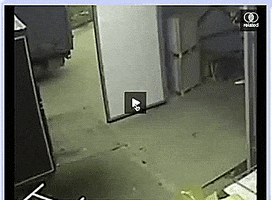Chromatizm
Experienced
IMO, investing in lots of bass traps and maybe a few diffusers plus am acrylic shields for the drummer will give you the best results in this situation as for the sound and joy of play
A freight elevator.Wondering if anyone has advice/resources on turning a finished basement into a rehearsal space...

IEM would work the best in that situation. Outside that I'd just get a handful of poweredwedges and forego the columns.
Ha ha … I was thinking loading dock

Mini fridge, fans, incense.
So when you go out and play a gig with no FOH do you give the audience IEMs too?
Unless you are going to play venues that ALL have FOH support then do your self a favor get some columns, learn how to dial in a decent live sound and how not to overplay a room. I played in a cover band that did a large variety of gigs from clubs with FOH, to outdoor festivals with FOH, to backyard wedding receptions, to corporate parties in a variety of rooms. If we coudn't do our own FOH then 2/3's of our gigs would not have been possible.
IEMs are not a panacea for any of that.
Mini fridge, fans, incense.
Unless you're dead set on a live room with amps and acoustic drums just get a digital mixer with enough sends for each member, a headphone amp for each member and you can rehearse silently.Wondering if anyone has advice/resources on turning a finished basement into a rehearsal space.
Mixer
Monitors
Acoustics
Microphones
What am I not thinking about sort of thing?
Thanks
This is great advice. Most of our band's gigs are small venues or private/corporate parties where we do our own sound (we have a "sound guy", but I wouldn't call that FOH). One of the best learning experiences that a home/basement rehearsal situation provides is adjusting to the room.Unless you are going to play venues that ALL have FOH support then do your self a favor get some columns, learn how to dial in a decent live sound and how not to overplay a room.
Then use a load box/attenuator.I just can't stand the guitar amps I like turned up to where I think they sound good.
The OP said he wasn't concerned about bothering his neighbors or anyone else. He is playing in a band not in isolation by himself. Also IEMs will not solve anything for a drummer that plays loud (except to protect your hearing). That would require an electronic kit. Unless your drummer is going to use an e-kit on stage and in rehearsals then you have already broken the guidance about using in rehearsals what you will use live.I like IEMs at home a lot for a variety of reasons. Among them are that I don't bother anyone else, and I hear the "same thing" whether the room is silent or not.
Then use a load box/attenuator.
The OP said he wasn't concerned about bothering his neighbors or anyone else. He is playing in a band not in isolation by himself. Also IEMs will not solve anything for a drummer that plays loud (except to protect your hearing). That would require an electronic kit. Unless your drummer is going to use an e-kit on stage and in rehearsals then you have already broken the guidance about using in rehearsals what you will use live.
Thanks captain obvious. So why did you bring up amps in the first place? BTW the OP said not everyone is going to use a modeler - a couple will be using amps. Did you even read the whole thread?You're on a fractal forum....fractal sounds better than any load I've tried. By far.
As I already suggested. The OP also said the IEMs would be a tough sell to a couple of people in the band. What is your next advice? Replace those people with only those who will agree to use IEMs?If I were doing what the OP was talking about doing, I'm pretty sure the first thing I'd buy would be a digital console to run IEMs and speakers.
IEMs are a big investment; it’s not just the cost of the systems… you have to consider mic’ing everything. Unless you are expecting everyone and everything (kick, snare, H/H, OH, toms, amps, etc) to be FOH mic-ready, or everyone has electronic/modeler equipment, or you are actually recording everything (studio style), then IEMs will be tough.
I’d spend that IEM money on a good digital mixer you can grow into. We use a Behringer X32 and it’s the one I see most out in the wild… but the price on those has doubled in the last 3-4 years. Lately I’ve been seeing a lot of the IPad docking style mixers that seem pretty versatile and more budget-friendly. Tons of good choices nowadays.
Then I’d just get some decent wedges for vocal monitors, SM 58s for anyone singing and see how it goes. With that base, you can start adding pieces to suit your needs.
Probably the best advice yet… I’d add peppermint oil spray for your funkier friends. I’ve been in some stanky basement rehearsal spots.fans
